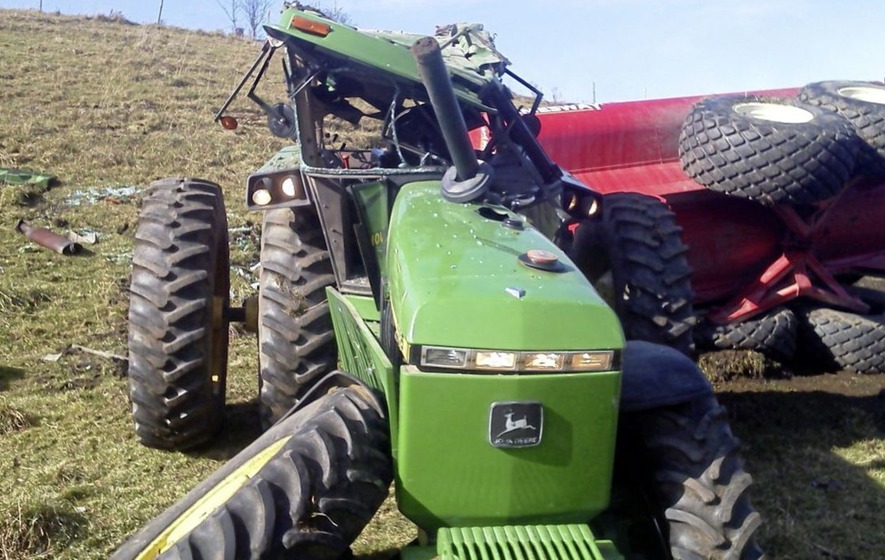Simple Steps Can Save Lives on the Farm
IT seems a long time since the annual showcase of one of Northern Ireland’s most important industries at the Balmoral Show. As usual it generated a great buzz and although the agri-food sector may be facing uncertainties, Balmoral demonstrated that the industry has the confidence and the quality to help drive the wider economy.
But farming is also a dangerous occupation which creates specific insurance challenges. Last year there were seven fatal accidents on Northern Ireland farms. The statistics also reveal that on average there are around 120 accidents on local farms every year which result in the farmer being unable to work for more than three months.
For the most part farmers acknowledge the dangers of their occupation and a survey conducted by Autoline at this year’s Balmoral found that 81 per cent agreed. That almost 20 per cent didn’t agree, however, suggests that we need to keep promoting the safety message.
This is particularly apt given the imminent arrival of the school holidays. Tragically, fatal accidents involving children on farms have been all too common. Whether they live on farms or are visiting, children need guidelines, boundaries and, most importantly, supervision. Machinery, livestock and day-to-day farming are all a source of curiosity, but they all present risk.
Responsibility lies with the farmer to minimise these risks and there are simple steps to take such as fencing off dangerous areas. Another increasingly popular option is to provide a safe and supervised play area away from the main farmyard.
Our Balmoral survey also found that 25 per cent of farmers hadn’t reviewed their insurance in three years, including 18 per cent who had never reviewed it. Reviewing insurance makes good financial sense, but it’s also an important prompt to remember that farms are hazardous workplaces. When was the last time you checked machinery guards or reassessed work practices?
Given the risks it’s important that your insurance policy meets the specific pitfalls of your business. For example, the law states that young drivers (13-plus) who drive a tractor engaged in agricultural activities on private land must hold a certificate of competence in tractor driving. Most agri-vehicle insurers will provide cover for these young drivers, but only if they have completed the relevant course. You need, however, to review these issues with your insurer/broker to ensure your cover is adequate.
The tractor-driving courses are, incidentally, organised by Cafre and are a great way of making sure that young drivers understand the risks associated with machinery and encourage them to develop good habits from an early age.
The public’s imagination of what it means to be a farmer is a far cry from the busy and often stressful experience of modern-day farmers. It can be hard to give safety the priority it requires when other deadlines and pressures also have to be managed.
The insurance industry is focused is on minimising these dangers and a professional firm will work with you to achieve just that. As insurance brokers we have a unique perspective on risk and we have recently joined the HSENI Farm Safety Partnership to help provide insight into how the farming community perceive risk.
Simple steps can save lives. Taking just a minute to reassess that routine job before starting could be all it takes. Risk can’t be avoided, but it can be managed.
:: Richard Henderson is head of agriculture insurance at Autoline Insurance Group (www.autoline.co.uk)




